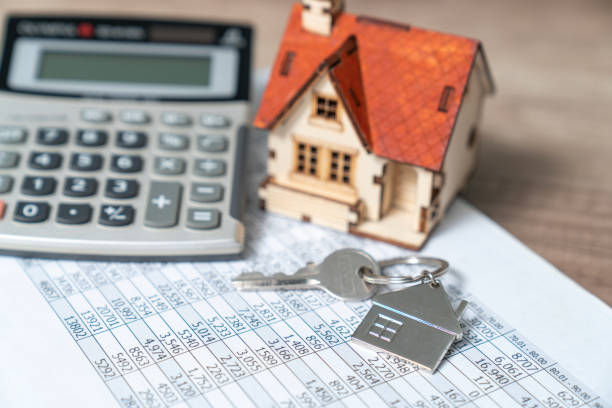How many days before closing do you get mortgage approval? Securing a mortgage is a pivotal step in the journey of homeownership, allowing aspiring homeowners to turn their dreams into reality.
As you embark on this exciting endeavor, a key question arises: How many days before closing do you get mortgage approval?
The timeline for mortgage approval is a crucial factor that can impact your overall home-buying experience and determine the pace at which you can transition into your new abode.
In this article, we will delve into the intricate details of the mortgage approval process, shedding light on the factors that influence the timeline.
By understanding the dynamics at play, you can equip yourself with the knowledge needed to navigate this significant stage of homeownership with confidence and informed decision-making.
Whether you’re a first-time buyer or a seasoned homeowner, unraveling the mystery behind mortgage approval timelines will empower you to plan effectively, minimize uncertainties, and ultimately embrace the exciting prospect of calling a new house your home.
Also Read:
How Does a Reverse Mortgage Work When You Die?
How Do Mortgage Interest Rates Work?
How Many Days Before Closing Do You Get Mortgage Approval?
The timeline for receiving mortgage approval before the closing date is a critical aspect of the home-buying process.
On average, it typically takes about 30 to 45 days from the time of submitting your mortgage application to obtaining full approval.
However, the exact duration can vary widely based on several factors.
Lenders evaluate various elements during the approval process, including your credit history, income verification, employment status, and property appraisal.
Delays can arise if documentation is incomplete or if there are discrepancies that need further clarification.
Additionally, market conditions, lender workload, and the complexity of your financial situation can influence the timeline.
To expedite the process, obtaining a pre-approval before house hunting can help set realistic expectations and demonstrate your seriousness as a buyer.
Clear communication with your lender, promptly supplying requested documents, and working closely with your real estate agent can also streamline the approval process.
Overall, while the average timeframe for mortgage approval is around 30 to 45 days, individual circumstances can lead to variations.
Being proactive, organized, and responsive throughout the process enhances the chances of a smooth and timely approval, ensuring you’re on track to secure your dream home without unnecessary stress.
Factors Influencing Mortgage Approval Timing
The timing of mortgage approval is influenced by an array of factors that collectively shape the duration of the process.
Primarily, the complexity of an applicant’s financial profile plays a significant role.
Factors like credit history, employment stability, income verification, and debt-to-income ratio impact the level of scrutiny required and can either expedite or prolong the approval timeline.
Property-related aspects also contribute.
A thorough appraisal of the property’s value and condition is necessary, which can take time depending on local real estate trends and appraiser availability.
Additionally, if the property requires repairs or adjustments, the approval process may extend further.
Lender workload and market conditions are external elements affecting the timing.
During periods of high demand, lenders might have a heavier workload, which could lead to a longer review period.
Borrower responsiveness and preparedness are crucial.
Delays often stem from missing documentation or incomplete information, underscoring the importance of promptly supplying requested paperwork and promptly answering queries from the lender.
Overall, the timeline for mortgage approval hinges on factors encompassing borrower qualifications, property evaluation, lender capacity, and responsiveness.
Recognizing these variables and proactively managing them can contribute to a smoother and more predictable mortgage approval process.
Potential Delays and How to Mitigate Them
Throughout the mortgage approval process, potential delays can arise due to various factors.
One common source of delay is incomplete or inaccurate documentation.
To mitigate this, borrowers should meticulously prepare all necessary paperwork, including financial statements, tax returns, and proof of income, and ensure their accuracy.
Property-related issues can also cause setbacks.
An appraisal that comes in below the agreed-upon purchase price may necessitate renegotiations or additional time for resolution.
Moreover, if the property requires repairs, arranging and completing them can prolong the approval process.
Lender-related delays might stem from a high volume of applications or changes in lending regulations.
To counteract this, early engagement with a reputable lender and clear communication can help manage expectations and maintain progress.
Borrowers can proactively mitigate delays by promptly responding to lender requests, staying informed about the process, and cooperating closely with their real estate agents.
Regularly checking in with all involved parties and staying updated on the progress can prevent misunderstandings and provide opportunities to address potential issues swiftly.
Overall, understanding the potential sources of delay and taking proactive measures can significantly reduce the risk of extended approval timelines.
By maintaining open lines of communication and being prepared for potential obstacles, borrowers can increase their chances of a smoother and timelier mortgage approval process.
Also Read:
Does Rocket Mortgage Do Home Equity Loans?
How to Become a Mortgage Loan Originator
Conclusion
When it comes to securing mortgage approval before closing, timing is a critical factor that hinges on diverse variables.
While the average duration typically falls within 30 to 45 days, individual circumstances, borrower readiness, property evaluations, and lender workloads contribute to variations.
Proactive preparation, accurate documentation, and clear communication can mitigate potential delays.
Embracing a collaborative approach with lenders and real estate agents enhances the likelihood of a smooth and timely approval process.
By understanding these dynamics and being actively engaged in the journey, aspiring homeowners can navigate the path to mortgage approval with confidence and anticipation, paving the way for a successful transition to their new home.














